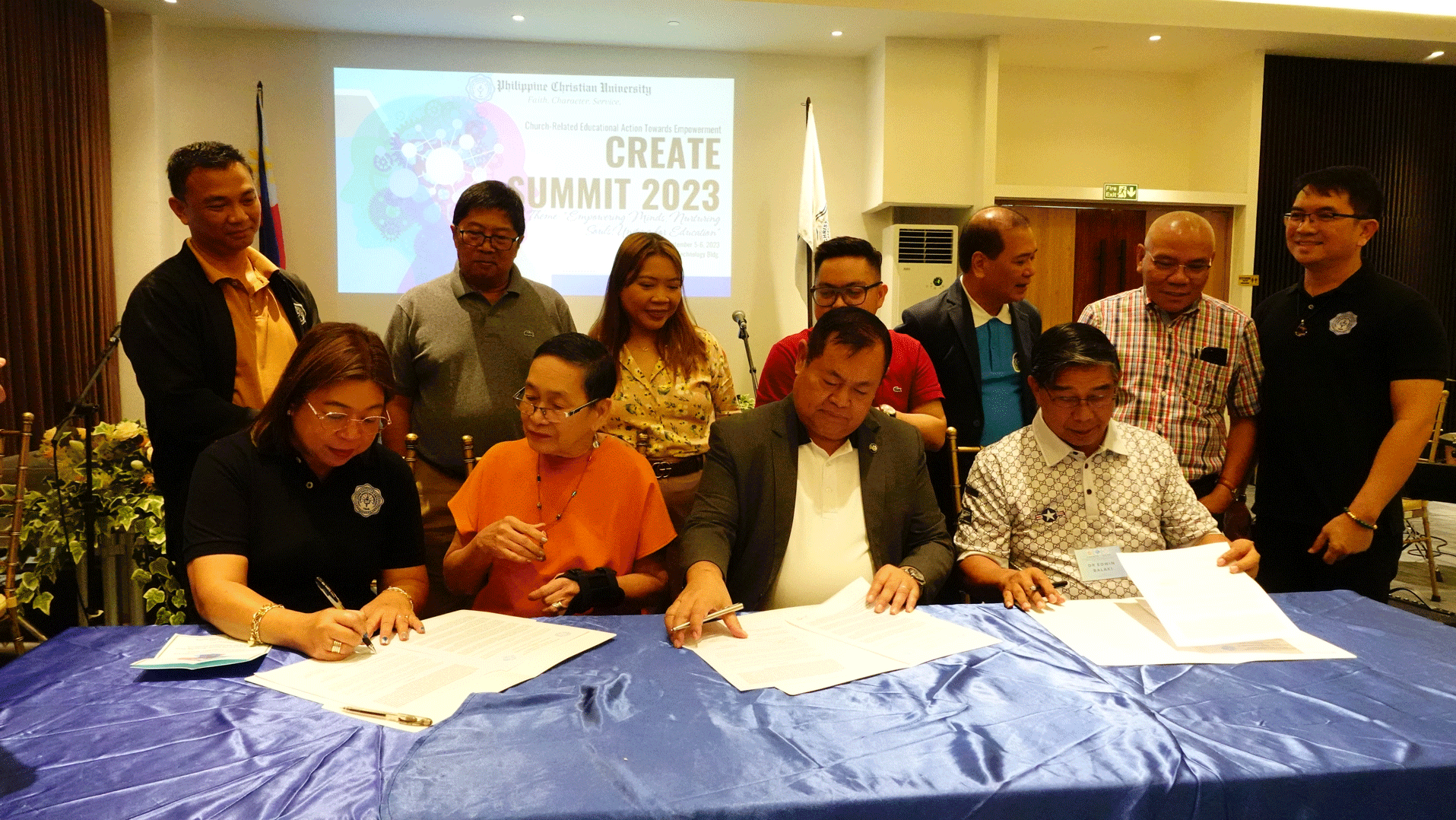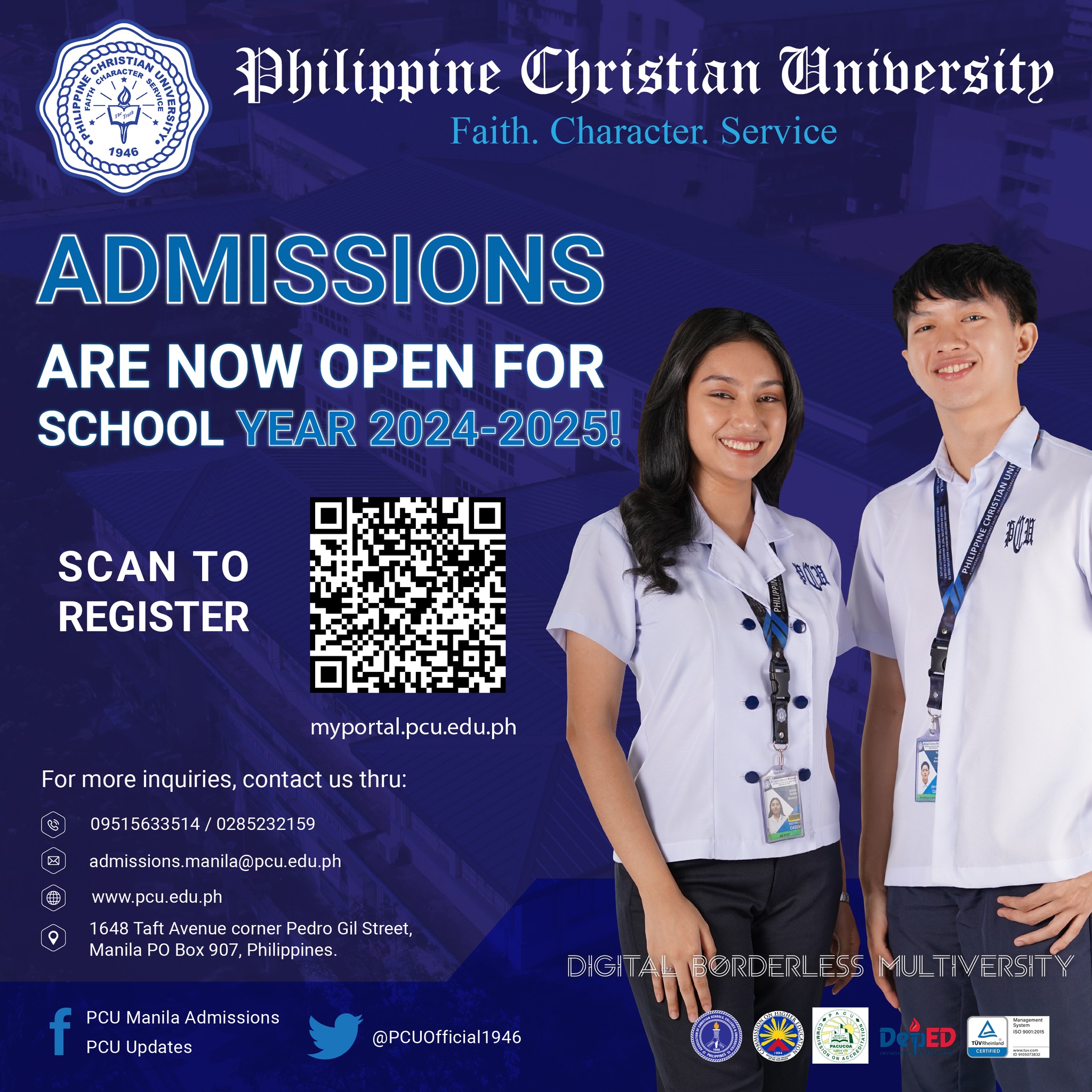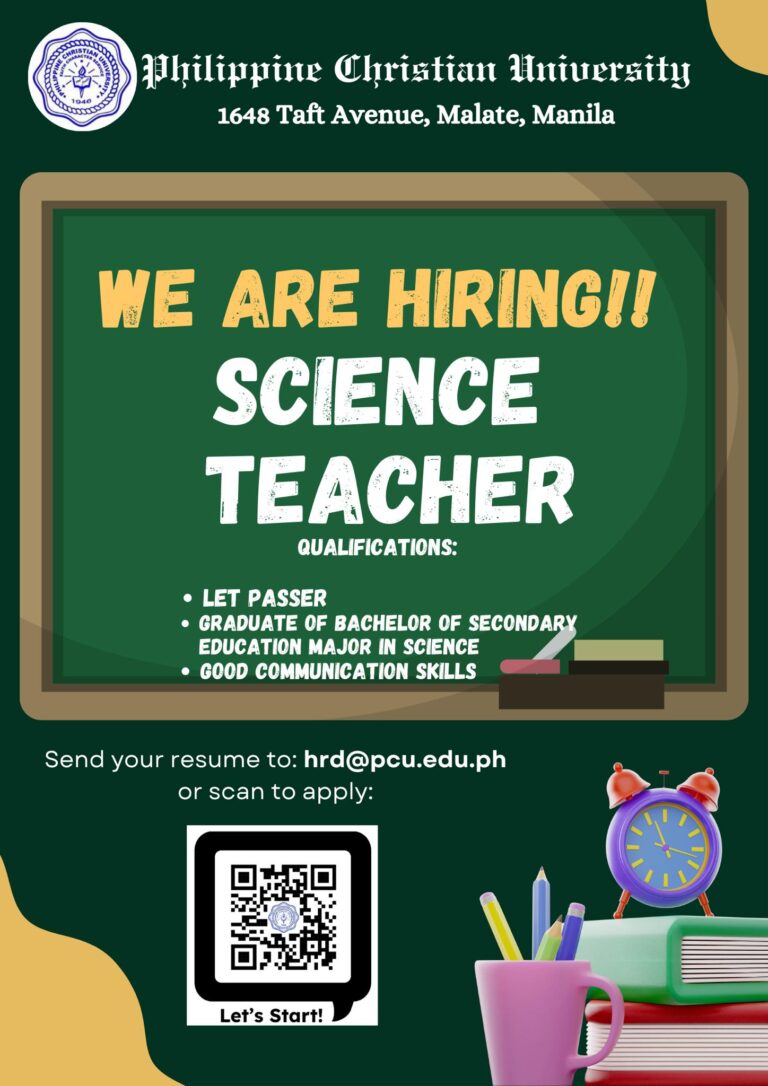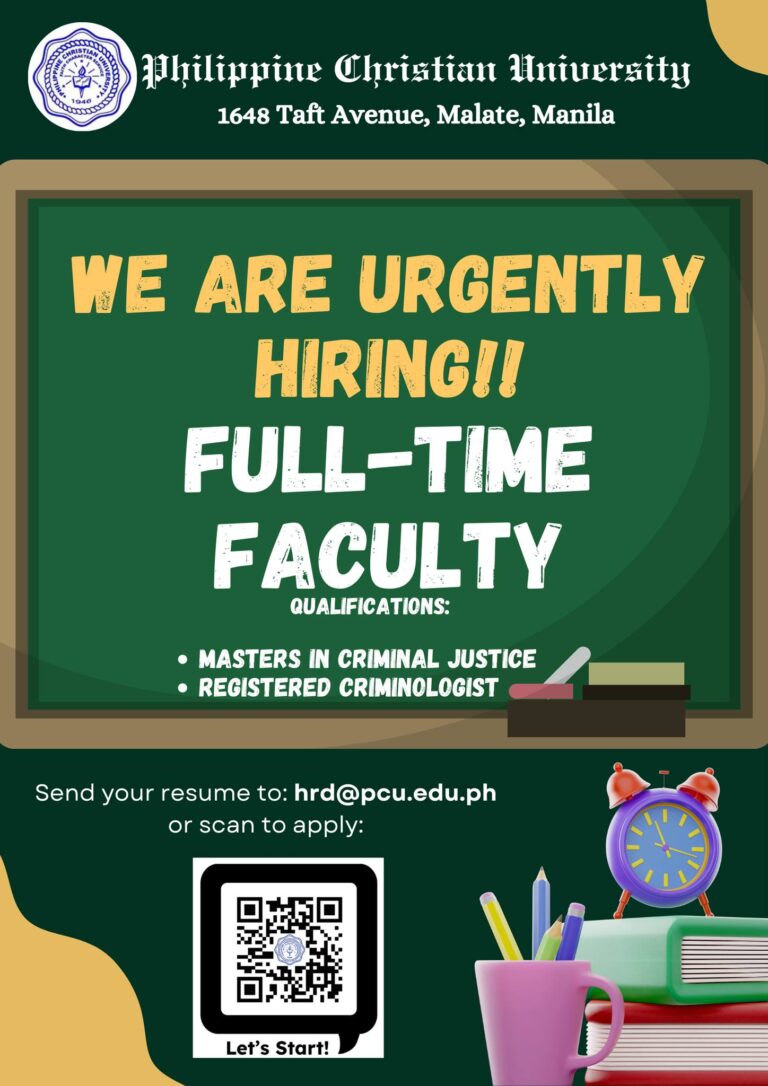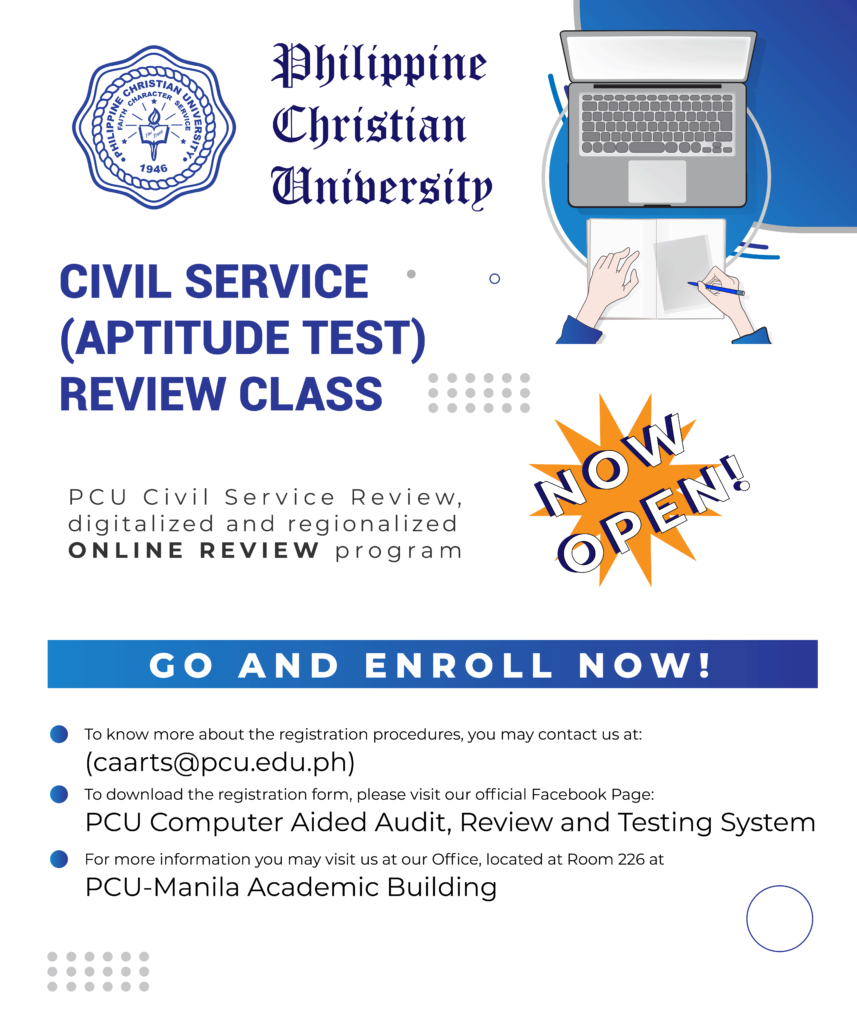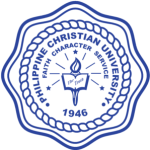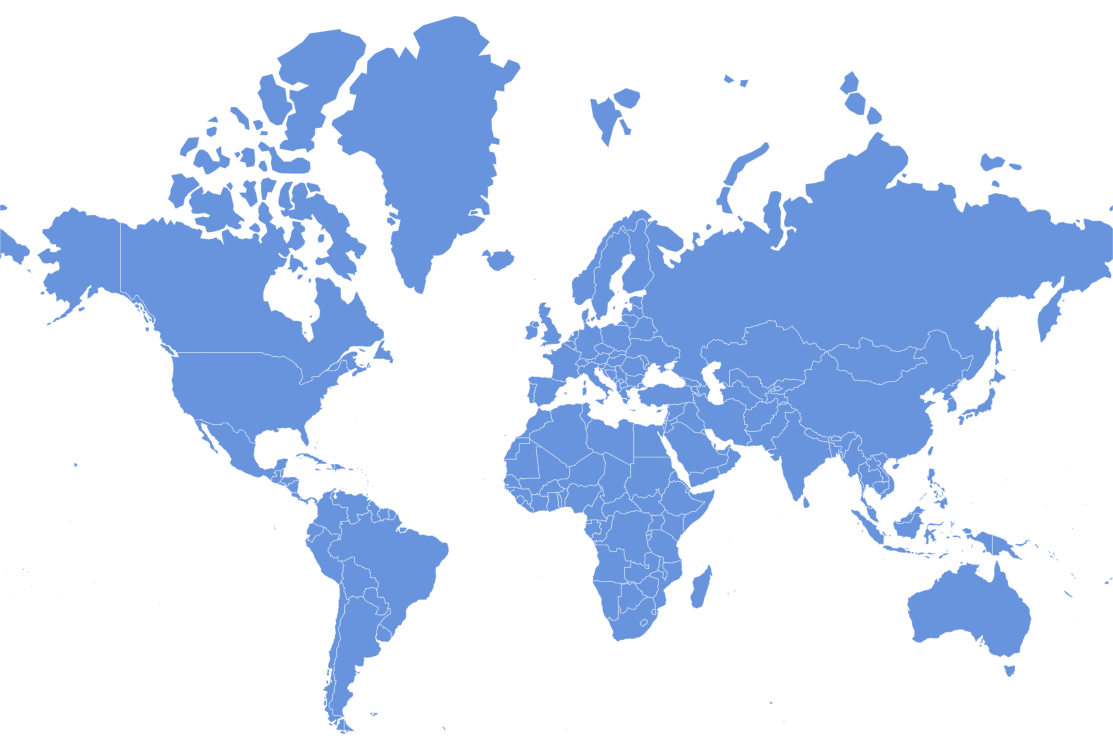PHILIPPINE CHRISTIAN UNIVERSITY
Doctor of Philosophy Programs
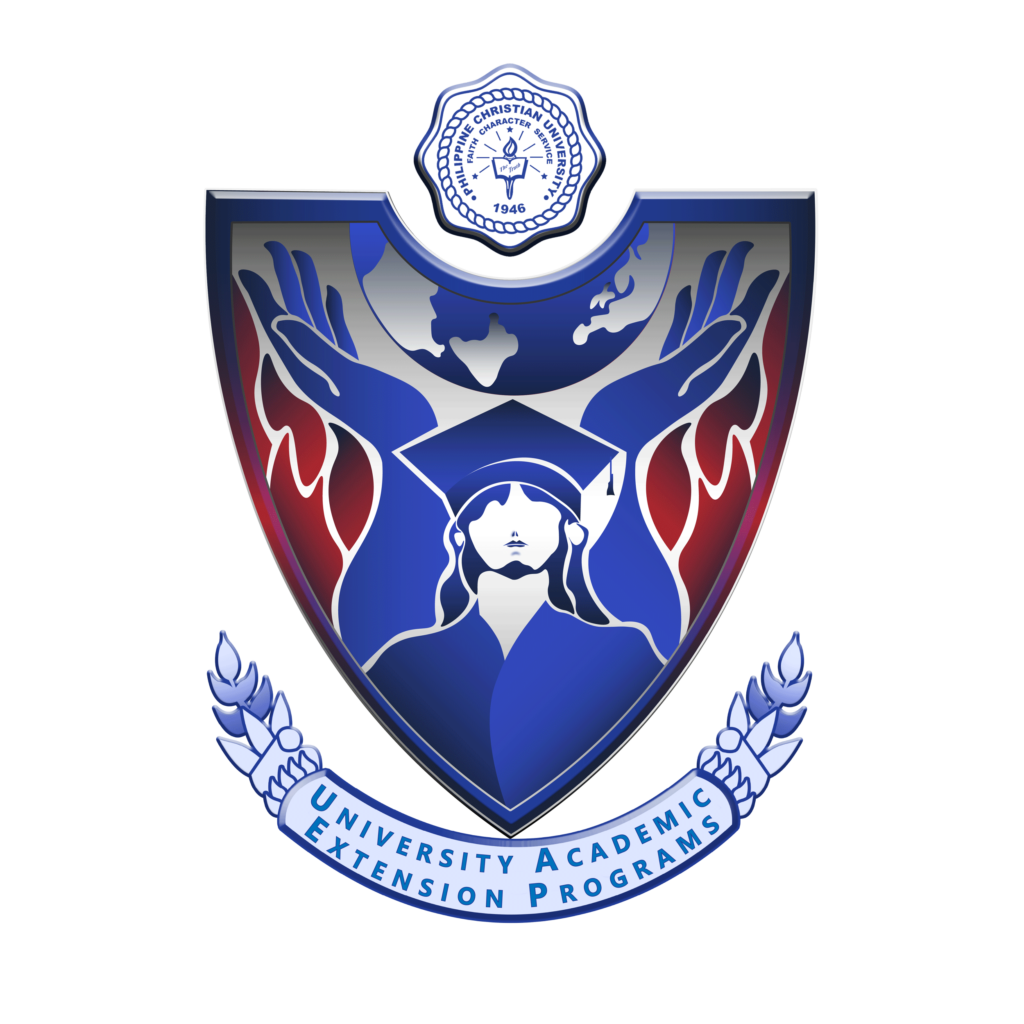
Revelino D. Garcia, Ph.D.
Director, Ph.D. Program
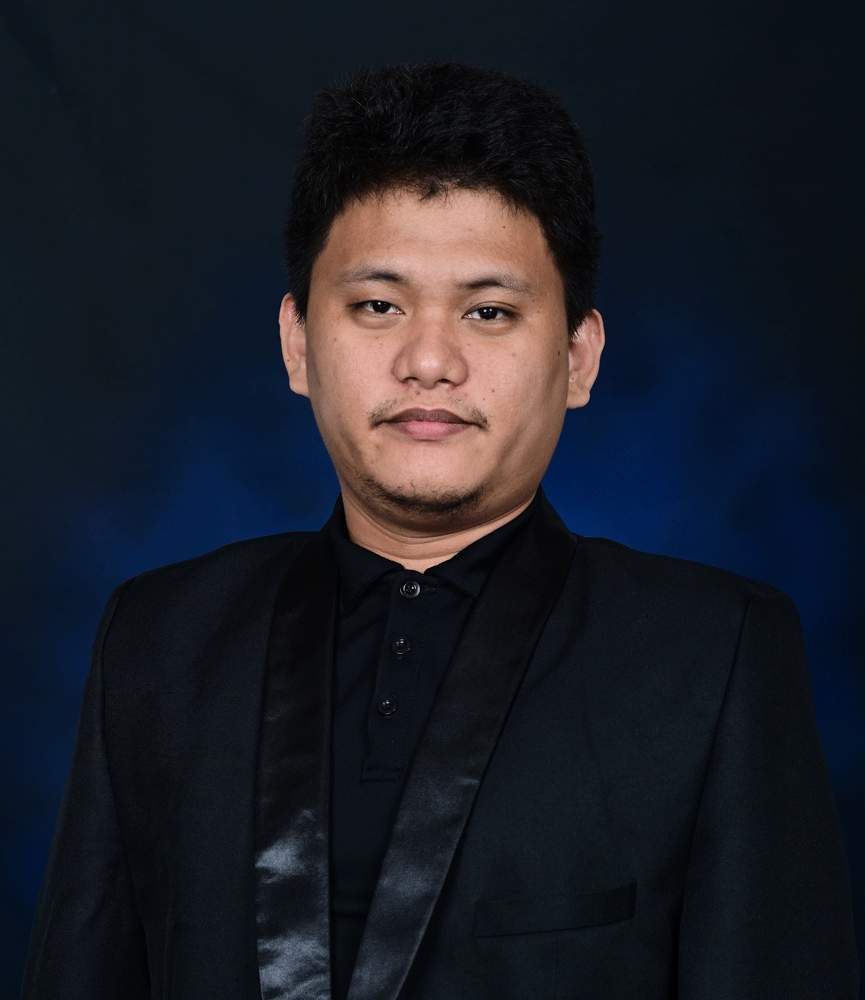
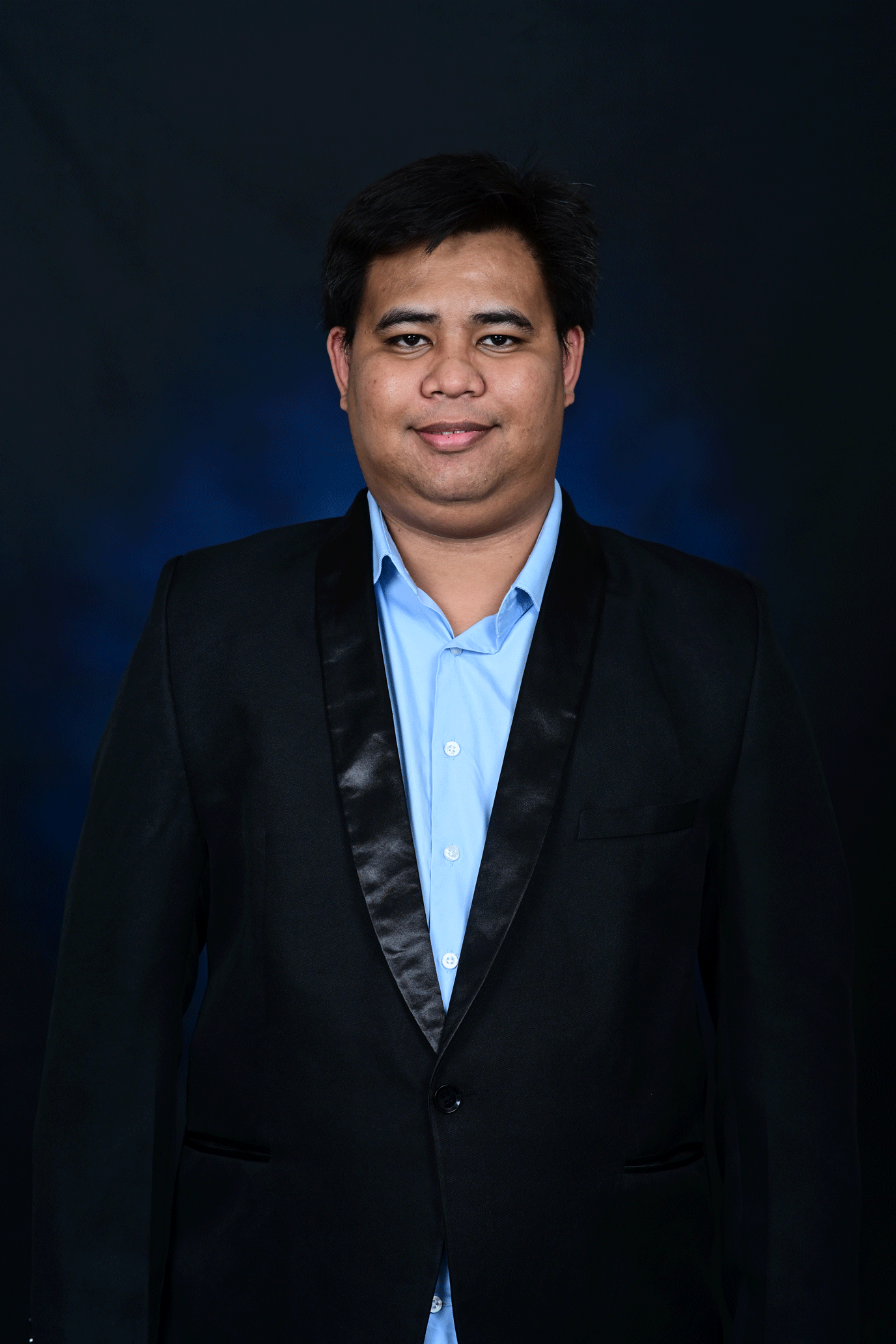
Contact Us
- (+63) 9454502768
- (+63) 9690121396
The PhD can take on something of a mythic status. Are they only for geniuses? Do you have to discover something incredible? Does the qualification make you an academic? And are higher research degrees just for people who want to be academics?
PhD stands for Doctor of Philosophy. This is the highest level academic degrees that can be awarded. PhD is an abbreviation of the Latin term (Ph)ilosophiae (D)octor. Traditionally the term ‘philosophy’ does not refer to the subject but its original Greek meaning which roughly translates to ‘lover of wisdom’.
A typical PhD involves:
- Carrying out a literature review (a survey of current scholarship in your field).
- Conducting original research and collecting your results.
- Producing a thesis that presents your conclusions.
- Writing up your thesis and submitting it as a dissertation. Defending your thesis in an oral viva voce exam.
Your PhD can take you much further afield though. You may find yourself visiting archives or facilities to examine their data or look at rare source materials. You could even have the opportunity to spend an extended period ‘in residence’ at a research center or other institutions beyond your university.
Working with your supervisor. All PhD projects are completed with the guidance of at least one academic supervisor. They will be your main point of contact and support throughout the PhD.
Your supervisor will be an expert in your general area of research, but they won’t have researched on your exact topic before (if they had, your project wouldn’t be original enough for a PhD).
As a PhD student you are now an independent and original scholar, pushing the boundaries of your field beyond what is currently known (and taught) about it. You are doing all of these for the first time;
The modern PhD is also viewed as a more flexible qualification. Not all doctorate graduates end up working in higher education. Many follow alternative careers that are either related to their subject of specialism or draw upon the advanced research skills their PhD has developed.
PhD programs have begun to reflect on this. Many now emphasize transferrable skills or include specific training units designed to help students communicate and apply their research beyond the university.
What all of this means is that very few PhD experiences are just about researching and writing up a thesis.
Doing this is very worthwhile, whatever your career plans. You will develop transferrable skills in public speaking and presenting, gain feedback on your results and begin to be recognized as an expert in your area. Conferences are also great places to network with other students and academics.
Publication. As well as presenting your research, you may also have the opportunity to publish work in academic journals, books, or other media.
This can be a challenging process. Your work will be judged according to the same high standards as any other scholar’s and will normally go through extensive peer review processes.
But it is also highly rewarding. Seeing your work ‘in print’ is an incredible validation of your PhD research and a definite boost to your academic CV.
Public engagement and communication. Academic work may be associated with the myth of the ‘ivory tower’ – an insular community of experts focusing on obscure topics of little interest outside the university. But this is far from the case.
Thankfully, there are plenty of opportunities to try your hand at public engagement as a PhD student. Universities are often involved in local events and initiatives to communicate the benefits of their research, ranging from workshops in local or international forums to public lectures and presentations.
Our PhD programs include structured training in order to help you with activities such as the above.
Your supervisor may also be able to help by identifying suitable conferences and public engagement opportunities, or by involving you in appropriate university events and public engagement initiatives.
In a nutshell, a doctorate degree:
Provides you with comprehensive research principles and methodologies.
Offers both theoretical and practical principles.
Advances your discipline knowledge.
Increases your specialized and/or cross-discipline skills.
Aligns your professional interests and goals.
Our Mission
We embrace diversity, equity and inclusion by:
- Seeking actively bold and innovative ideas;
- Developing an inclusive learning environment and curricula;
- Measuring continuously our relevance from meaningful feedback from our academic, business and development communities; and
- Creating dynamic policies and initiatives appropriate to our global clienteles.
Our Goals and Objectives
Our goals and objectives are twofold:
- We are committed to educating and developing global leaders, and builders of enterprises to creating value for their stakeholders and society at large.
- We are committed to developing students to creating breakthrough knowledge, frameworks, and models of management through researches.
Our objective is to deliver exceptional education, training and support for our students to flourish in a changing world and improve life chances.
Our goals and objectives are twofold:
- We are committed to educating and developing global leaders, and builders of enterprises to creating value for their stakeholders and society at large.
- We are committed to developing students to creating breakthrough knowledge, frameworks, and models of management through researches.
Our objective is to deliver exceptional education, training and support for our students to flourish in a changing world and improve life chances.
This curriculum strategy recognizes the future context and considers national and global management in business, education and development. We recognize that this strategy is not exhaustive but our curricula adapt and reflect emerging priorities over the next five years.
This is our commitment for SY 2022-2027.
Our five strategic priorities are:
- A Purposeful Curriculum
- A curriculum that is creative, flexible and responsive which is delivered by industry experts, is specially designed to meet current and future market demands.
- A curriculum design that is relevant in life and employment and creating entrepreneurship innovations developed in partnership with experts in industry.
- Curriculum that is delivered by expert practitioners.
- Global-Based Teaching, Learning and Outcomes
- Our global teaching inspires, builds confidence and inquisitiveness to our students.
- Our learning methodologies provides individualized support to addressing industry requirements.
- Learning outcomes ensure that students achieve results and outcomes that are competitive at par or even above par with their peers.
- Learning Environments
- Our learning environments makes us different: inspiring, output-based oriented, meeting industry global standards.
- Diverse, Inclusive, Supportive.
- Our faculty are industry experts and models of leadership, innovation.
- Finance and Resources
- Our sound finances allow us to offer top-of-the-line technologies to deliver efficient hybrid programs on a 24/7 anytime, anywhere, on real time scheme.
- Our borderless and multiversity programs and faculty get excellent reviews from our internationally-based students.
- Reputation As “Why enroll in our PhD programs”
- Our programs enjoy Autonomy Status, Level IV Accredited, ISO Certification, and National Education Board Accredited in the various countries that the programs are delivered.
- We have influence in key regional and national agendas as most of our graduates occupy high level positions in government and multinational firms.
This curriculum strategy document will provide the framework to ensure we meet our strategic mission, goals and objectives and deliver our vision.
Our curriculum as a progression model. The content of the curriculum is understood to be academically and professionally driven that empowers our students to become successful in their fields of specialization.
Corresponding, our highly qualified faculty in their field of expertise, will mold our students into their own field of specialization and become entrepreneurial in their workplaces.
Stage 1. Our students will have a clear understanding of the theoretical foundations models and frameworks in their field of specialization to support them build their knowledge and apply that knowledge.
Stage 2. Our students, with the learned guidance of our faculty, will review constantly the framework of our curriculum to ensure that the curriculum within their subject area address fully industry workplace environment requirements.
Stage 3. Our faculty and staff ensure that our students have a clear picture of what a highly successful student and professional looks like by the time he/she is done with the program.
Curriculum Strategic Drivers
There are a number of strategic drivers that impact on the curriculum long term implications.
Strategic Driver 1: Labor Market Conditions
The recent pandemic created significant disruptions within the labor market notably in management in retail, manufacturing tourism among others. Our programs cut across all disciplines which make them flexible and dynamic.
Strategic Driver 2: The 4th Industrial Revolution
We are currently in a 4th industrial revolution driven by technology. Thus, we will continuously upgrade our technologies to thrive in a technology-engaging environment of constant change.
Strategic Driver 3: Higher Education
The Autonomy Status and Accreditation dictate constant review our programs focus to ensure that we maintain our accreditation status. We are actually competing against ourselves one just one goal: keeping on everyday in all aspects of academic standards: faculty, students, curriculum, technology, global standards.
Strategic Driver 4: National and Regional Policy
The Autonomy Status and Accreditation dictate constant review our programs focus. Parallel to this is our national policy and regional policies. Since we have quite a number of graduates in high level positions in government and private enterprises, our curricula are attuned to policies on business, education and governance.
Strategic Driver 5: Global Presence
Our programs are recognized worldwide specifically in Asia, the Middle East, Africa, and some parts of the US. The excellent reviews of our faculty and program we receive from our international students is a major driver to continuously keep on improving to keep better.
Strategic Driver 6: Consultancy
Our programs will continue to heightened the consultancy competency levels of our students who are mostly occupying high level positions through their practicum and on-site training programs. We will continue to strengthen our linkages with multinational firms and the government.
Strategic Driver 7: Data Analytics
We are committed to move digital skills of our students to high competency levels specifically on data analytics. High end presentations, like simulations, projections and up-to-date use of big data usually will bring about high probabilities of proposed project acceptance.
FACULTY | Researches |
|
|
Garcia, Revelino | Graduate Education Tourism and Development of Dasmarinas City Publisher, International Journal of Innovation and Research in Education Sciences, January 31, 2022 Presented paper in Singapore, 2022 Philippine Mutual Funds Performance 2008-2019 Publisher, Academia, 2018 Presented paper at Bercu Buana University Indonesia, 2018 Understanding Of Accounting Students About Earning Management to Preparation of Financial Statements and Code of Ethics (Co-Author: Eddy Winarso) Publisher, Academia: Proceedings Jurnal of Interdisciplinary Research Presented paper at Widyatama University, Bandung Indonesia, 2018 |
- Autonomy Status granted by the Commission on Higher Education, Philippines
- ISO 9001 Certification, April 2015 Series
- Graduate School Programs are Accredited Level 4 by the Association of Colleges, Schools and Universities (ACSCU)
- Accredited, National Education Board, Ghana
- Accredited, National Education Board, Namibia
- Accredited, National Education Board, Zambia
- Accredited, National Education Board, Zimbabwe
- Accredited, National Education Board, Botswana
- Accredited, National Education Board, Ethiopia
- Accredited, National Education Board, Kenya
- Global Mission Cambodia Center in Battambang City, Battambang Province, Cambodia
- Al-Andalus International School in Al Khobar North, Kingdom of Saudi Arabia
- Widyatama University, Bandung, Indonesia
- Adventist Universitat, Bandung, Indonesia
Courses Offered
- Doctor of Philosophy in Education
- Adult Education (see and download curriculum)
- Arts and Music (see and download curriculum)
- Biology
- Curriculum Instruction (see and download curriculum)
- Curriculum Development (see and download curriculum)
- Early Childhood (see and download curriculum)
- Education
- Educational Management and Leadership (see and download curriculum)
- English Language and Literature (see and download curriculum)
- Guidance and Counselling
- Mathematics Education
- Music Education (see and download curriculum)
- Technology Education(see and download curriculum)
- Other Doctor of Philosophy Programs
- Church Administration
- Religious Studies (see and download curriculum)
- Theology
- Nursing (see and download curriculum)
- Nutrition (see and download curriculum)
- Criminal Justice (see and download curriculum)
- International Law (see and download curriculum)
- Strategic Management and Leadership
- Doctor of Philosophy in Business Management with majors in:
- Engineering Management (see and download curriculum)
- Human Capital and Labor Relations (see and download curriculum)
- Information Technology (see and download curriculum)
- International Accountancy (see and download curriculum)
- International Business (see and download curriculum)
- International Finance (see and download curriculum)
- International Health Care Management (see and download curriculum)
- International Logistics-Supply-Chain (see and download curriculum)
- International Marketing (see and download curriculum)
- International Tourism Hospitality (see and download curriculum)
- International Trade and Business Law (see and download curriculum)
- Labor Relations (see and download curriculum)
- Real Estate Management (see and download curriculum)
- Research and Evaluation
- Special Education (see and download curriculum)
- Strategy Management (see and download curriculum)
- Doctor of Philosophy in Public Health with majors in:
- Nursing (see and download curriculum)
- Public Health (see and download curriculum)
- Environmental Health and One Health Concentration (see and download curriculum)
- Doctor of Philosophy Development Administration with majors in:
- Security Development (see and download curriculum)
- Education Governance (see and download curriculum)
- Environment Management (see and download curriculum)
- Environmental Planning and Development
- Legal Studies (see and download curriculum)
- Leadership (see and download curriculum)
- Political Economy and Governance
- Project Management ( see and download curriculum)
- Public Governance (see and download curriculum)
- Social Development (see and download curriculum)
- Post Doctorate Programs
- Advanced Strategy Management and Leadership (see and download curriculum)
- Total Quality Management (see and download curriculum)
- Strategic Management and Leadership (see and download curriculum)

